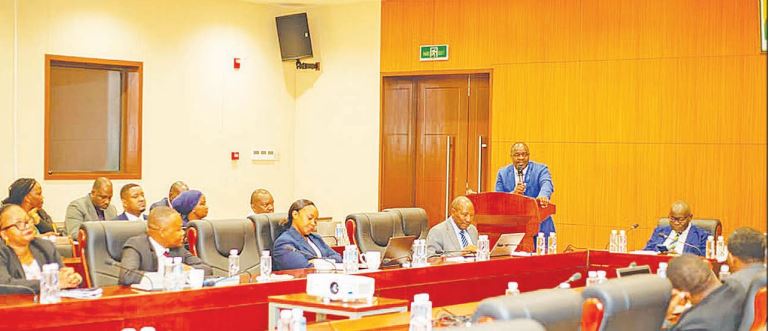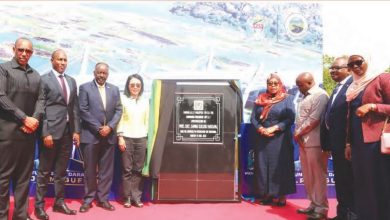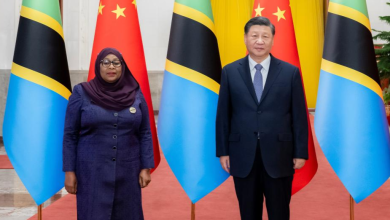Treasury Registrar’s Corner: Collaborative governance: Key to TZ’s Vision 2050

IN the heart of Tanzania’s quest for a prosperous future, lies an essential but often overlooked ingredient: collaboration among key public institutions.
As the nation sets its sights on Vision 2050, the synergy between the Office of the Treasury Registrar (OTR), the National Audit Office of Tanzania (NAOT), the Ministry of Finance and the President’s Office Public Service Management and Good Governance becomes not only advantageous but imperative.
Recent discussions led by the Treasury Registrar, Mr Nehemiah Mchechu and the Controller and Auditor General (CAG), Mr Charles Kichere, in Kibaha, Coast Region, illuminate why this quartet of institutions must speak in “the same tone” to facilitate meaningful reforms in public governance.
The imperative for collaboration at a recent two-day working session held at the Mwalimu Julius Nyerere Leadership School in Kibaha, both leaders emphasised the dire need for a collaborative approach.
Mr Mchechu noted, “We must improve good governance,” underlining the idea that reforms in public institutions cannot thrive in isolation.”
“Each office plays a crucial role in ensuring accountability, transparency and effective resource management elements that are foundational for Tanzania’s socio-economic growth,” he said.
The OTR has already taken significant steps by conducting a meeting with the NAOT.
This engagement is a crucial first step in establishing a robust partnership aimed at ensuring that public funds are utilised effectively, thereby reducing wastage and enhancing service delivery.
Mr Kichere highlighted this necessity, stating they needed to create an environment of productive accountability to achieving Vision 2050.
Financial stewardship and human resource management Another critical partnership lies between the OTR and the Ministry of Finance.
Public institutions rely heavily on financial resources, which are primarily allocated through the Ministry of Finance.
Thus, a harmonious relationship is essential for aligning financial strategies with institutional needs.
By working closely together, these offices can ensure that the funding provided to public entities is adequate and effectively targeted.
In light of the government’s substantial investment of 86.3tri/- in 308 institutions as of mid-2024 a 14.2 per cent increase from the previous year – there is a pressing need for these institutions to demonstrate effective use of resources.
This scrutiny is vital not only for financial accountability but also for enhancing the impact of public service delivery.
Equally important is the collaboration with the President’s Office Public Service Management and Good Governance, which oversees human resource management.
Mr Mchechu articulated that without a competent workforce, even the best-laid plans for reform would falter.
A collaborative effort to enhance employee training and capacity building is necessary to foster a skilled workforce capable of driving institutional performance.
Fostering a culture of accountability
The call for “interaction” between the OTR management and the NAOT signifies a shift towards a more integrated governance structure.
Such interaction promotes a culture of accountability, where institutions not only meet compliance standards but also actively engage in self-improvement and transparency.
Mr Kichere’s appeal for involving a broader array of stakeholders in reform discussions echoes this sentiment.
Engaging diverse voices not only enriches the reform process but also builds public trust, an essential component for sustainable governance.
This holistic approach aligns with Tanzania’s Vision 2050, which envisions a nation characterised by inclusivity and participatory governance.
A collective journey The collaborative efforts among the OTR, the NAOT, the Ministry of Finance and the President’s Office Public Service Management and Good Governance represent a significant stride towards effective governance in Tanzania.
With the initial meeting between the OTR and the NAOT already conducted, the groundwork for further collaboration is being laid.
Upcoming meetings with the remaining institutions will build on this foundation, ensuring a unified approach to governance.
By aligning their goals and strategies, these institutions can drive the transformation needed to realise the ambitions of Vision 2050.
The journey towards productive accountability is not merely a bureaucratic obligation; it is a shared commitment to building a resilient and thriving nation.
As Tanzania forges ahead, the imperative for collaboration becomes clear.
ALSO READ: Treasury Registrar’s Corner: How public entities can flourish globally
The challenges are immense, but together, these four institutions can ensure that public entities not only survive but thrive ultimately contributing to a prosperous future for all Tanzanians.
In this collective journey, the promise of Vision 2050 can become a reality, grounded in effective governance and unwavering accountability





